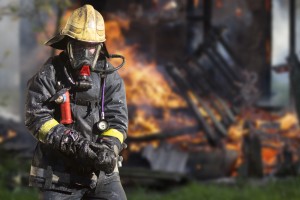 A new study from Monash University, ordered by the Australasian Fire and Emergency Service Authorities Council (AFAC), suggests firefighters are more at risk of developing certain types of cancer, compared to the general public in Australia.
A new study from Monash University, ordered by the Australasian Fire and Emergency Service Authorities Council (AFAC), suggests firefighters are more at risk of developing certain types of cancer, compared to the general public in Australia.
The study, led by Associate Professor Deborah Glass, from Monash’s Department of Epidemiology and Preventive Medicine, is the largest study of cancer risk and cause of mortality among Australian firefighters, both paid and voluntary.
The study was initiated by Monash 3 years ago, and was conducted in collaboration with an Advisory Committee comprised of AFAC members, trade unions, and firefighter volunteer associations. The researchers enrolled 232,871 active and former firefighters, and sought to compare the cancer risk and causes of death between firefighters and the general population.
“From the available data, it would appear that Australian firefighters do not have the same elevated incidence of all the identified cancers that have been found in previous overseas studies of cancer incidence in firefighters,” AFAC’s Chief Executive Officer, Stuart Ellis, said in a news release. “This is the first study of this size of Australian firefighters which also includes information on attendance at fires, so the industry is currently working through the findings to identify how the health of firefighters can be further protected.”
Glass and her team of researchers found that paid firefighters had a notably higher risk of developing melanoma and prostate cancer, likely from multiple exposures to harsh environments or prolonged service. Conversely, volunteer firefighters did not appear to have markedly higher risks of cancer because of their firefighting tasks. The researchers noted, however, that further study may be needed with the latter group, especially among volunteer firefighters who have been exposed to a higher number of fires and emergencies.
Interestingly, the study also found that male firefighters, regardless of the term of their service, were healthier than the general public as their overall mortality rate was significantly less. Glass explained this finding supports past studies that suggest employed males have lower death rates compared to the general public. Ellis adds, these positive results may be a reflection of the joint efforts of the countries fire agencies, unions, and volunteers to reduce firefighters’ health risks, but the new knowledge of their having an increased risk for prostate cancer and melanoma should prompt concerned agencies to integrate early and periodic screening tests in firefighters’ health programs.

